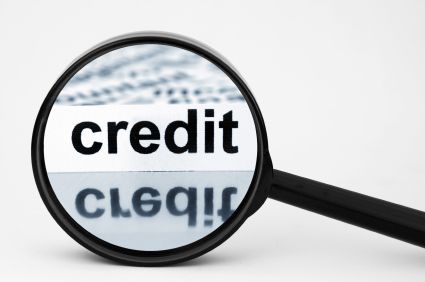
CREDIT IS THE MARK that lenders will use to gauge whether your small business qualifies for a loan, as well as the loan amount (sorry, you might not get the amount you want simply because you’ve been approved). There are numerous credit scoring models being utilized for various purposes around the world. In the United States, for example, the most recognized and commonly-used system is known as FICO (the most common system made by Fair Isaac Corporation). It is used to determine credit scoring in order to evaluate whether an individual is eligible for a loan or an extension of additional credit. The scoring system, utilized by the three largest credit reporting agencies in the U.S., allocates a number, ranging from 300 (ranked extremely poor) to 900 (ranked perfect credit). The average credit score in America, as determined by Experian, Equifax and Trans Union, is approximately 692 (as of May 2012). It is worth noting that your FICO score will depend on five aspects: amount owed, payment history, span of credit history, new credit, and the various types of credit used.
There are various factors that come into play when thinking of obtaining credit (or even initial financing) for your small business. If the credit you are seeking is for a new business, your business-to-be will have no credit history or track record in the industry. Therefore, a credit report and score will most likely be used to determine the creditworthiness of the individual for the credit or financing being sought. Conversely, it can be difficult for an individual to request a loan while facing personal debts, and in certain circumstances, even applying for a loan can be damaging to the person’s credit score. One way to make an improvement to your credit score is through an improvement of the debt-to-income relation; as such, paying off borrowed money can be of help in ensuring a good credit score.
Once a business has been successfully launched, the new entity can begin establishing its own identity regarding good fiscal responsibility. Smart accounting practices and solid record keeping, combined with tangible evidence of successful dealings with vendors, employees and creditors over time, pave the way for the foundation of its own solid credit history and creditworthiness. This activity is captured and archived the same way personal credit is established, and thus a business credit report is created.
Business credit reports and business credit scores are entirely disconnected from your personal credit report and personal credit scores. Although it illustrates the equivalent types of information and data as a personal credit report, a business credit report is specific to a business' debt service, tax liens and/or public records. Additionally, business credit scores may be comprised of information regarding the owners of the business and possibly its officers. Oftentimes, they are examined by creditors in combination with personal credit reports for a small business owner seeking financing.
Around the world, credit reports and scores do not intermix. For example, an American credit score is not transferable into Europe. Additionally, credit scores do not transfer from one European country to another. As a result, if you (or your business) relocate, new credit history will have to be rebuilt in most instances. However, a credit score in most parts of Europe is usually factored similarly to an American credit score. Factors such as public records, derogatory items, late payments, and revolving and installment credit accounts are captured and archived. So, whether it’s in Europe or America, in order to develop and subsequently sustain a good credit standing and a high credit score, it is vital to uphold a satisfactory repayment history and debt-to-income ratio. While each country's specific credit reporting and collecting practices may differ, accounts in good standing will be required.
For any business, especially small businesses, to realize success, good credit control practices and solid record keeping should be a priority. It is fact that a high number of small businesses end up being declared bankrupt each year because of these aspects. Another key reason why credit control is so imperative is that new small businesses may find it difficult in establishing lines of credit with suppliers. Accordingly, most suppliers place expectations on the small business in question to make consistent, on-time payments for the supplies purchased.
A good credit score forms the financial foundation of every small or new business. In summary, it puts the organization in a position to acquire funding for issues such as capital expenditures, expansion, employment creation, research, and future development. It remains a key factor toward the growth of any business and guarantees a promising future.
Nevertheless, good credit allows a business owner to closely monitor cash, thus ensuring that the cost of running a business doesn’t become a problem. This kind of liquidity allows one to respond promptly to time-sensitive necessities without compromising processes. Specialized credit and financial advisers can offer guidance for establishing, monitoring, improving and protecting your credit.
Aside from helping business owners get access to financial aids, good credit, coupled with a high credit score, has more often become the chief means to set conditions on business loans, determination of insurance premiums, allocating lease payments, and even deliver you reduced interest rates, reinforcing your flow of cash.























